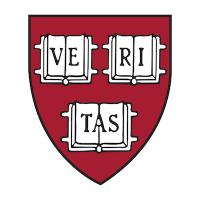What do they do?
Conduct research, prepare reports, or formulate plans to address economic problems related to the production and distribution of goods and services or monetary and fiscal policy. May collect and process economic and statistical data using sampling techniques and econometric methods.
Also known as:
Economic Analyst, Economic Consultant, Economic Development Specialist, Economist, Forensic Economist, Project Economist, Research Analyst, Research Associate, Revenue Research Analyst, Tax Economist
-
0%
Change
Ranks #41 in job growth rate10Job Openings
Ranks #33 in net job growth
Looking for colleges that offer a specific major? Use the College Match Tool to find your best-matched schools and discover your estimated Net Price!
- Master's degree (43%)
- Doctorate or Professional Degree (37%)
- Bachelor's degree (20%)
- Associate's degree (<1%)
- Some college, no degree (<1%)
- High school diploma equivalent (<1%)
- Less than high school diploma (<1%)
Most Popular Majors that prepare Economists
-
#1
-
Degrees Granted
17,726
-
Female Students
5,279
-
Male Students
12,447
-
Median Starting Salary
$53,900
-
-
#2
-
Degrees Granted
14,079
-
Female Students
5,374
-
Male Students
8,705
-
Median Starting Salary
$53,900
-
-
#3
-
Degrees Granted
4,383
-
Female Students
1,477
-
Male Students
2,906
-
Median Starting Salary
$52,100
-
-
#4
-
Degrees Granted
1,479
-
Female Students
471
-
Male Students
1,008
-
Median Starting Salary
$44,600
-
-
#5
-
Degrees Granted
395
-
Female Students
133
-
Male Students
262
-
Median Starting Salary
$56,100
-
People in this career often have these skills:
- Reading Comprehension - Understanding written sentences and paragraphs in work-related documents.
- Mathematics - Using mathematics to solve problems.
- Critical Thinking - Using logic and reasoning to identify the strengths and weaknesses of alternative solutions, conclusions, or approaches to problems.
- Active Listening - Giving full attention to what other people are saying, taking time to understand the points being made, asking questions as appropriate, and not interrupting at inappropriate times.
- Writing - Communicating effectively in writing as appropriate for the needs of the audience.
- Speaking - Talking to others to convey information effectively.
- Judgment and Decision Making - Considering the relative costs and benefits of potential actions to choose the most appropriate one.
- Active Learning - Understanding the implications of new information for both current and future problem-solving and decision-making.
- Complex Problem Solving - Identifying complex problems and reviewing related information to develop and evaluate options and implement solutions.
- Instructing - Teaching others how to do something.
- Systems Analysis - Determining how a system should work and how changes in conditions, operations, and the environment will affect outcomes.
People in this career often know a lot about:
- Mathematics - Knowledge of arithmetic, algebra, geometry, calculus, statistics, and their applications.
- Economics and Accounting - Knowledge of economic and accounting principles and practices, the financial markets, banking, and the analysis and reporting of financial data.
- English Language - Knowledge of the structure and content of the English language including the meaning and spelling of words, rules of composition, and grammar.
- Computers and Electronics - Knowledge of circuit boards, processors, chips, electronic equipment, and computer hardware and software, including applications and programming.
People in this career often have talent in:
- Written Comprehension - The ability to read and understand information and ideas presented in writing.
- Oral Comprehension - The ability to listen to and understand information and ideas presented through spoken words and sentences.
- Oral Expression - The ability to communicate information and ideas in speaking so others will understand.
- Written Expression - The ability to communicate information and ideas in writing so others will understand.
- Deductive Reasoning - The ability to apply general rules to specific problems to produce answers that make sense.
- Inductive Reasoning - The ability to combine pieces of information to form general rules or conclusions (includes finding a relationship among seemingly unrelated events).
- Mathematical Reasoning - The ability to choose the right mathematical methods or formulas to solve a problem.
- Speech Clarity - The ability to speak clearly so others can understand you.
- Fluency of Ideas - The ability to come up with a number of ideas about a topic (the number of ideas is important, not their quality, correctness, or creativity).
- Problem Sensitivity - The ability to tell when something is wrong or is likely to go wrong. It does not involve solving the problem, only recognizing that there is a problem.
- Number Facility - The ability to add, subtract, multiply, or divide quickly and correctly.
- Near Vision - The ability to see details at close range (within a few feet of the observer).
- Speech Recognition - The ability to identify and understand the speech of another person.
People in this career often do these activities:
- Review professional literature to maintain professional knowledge.
- Prepare scientific or technical reports or presentations.
- Forecast economic, political, or social trends.
- Supervise trainees.
- Instruct college students in social sciences or humanities disciplines.
- Conduct research on social issues.
- Advise others on matters of public policy.
- Explain regulations, policies, or procedures.
- Present information to the public.
- Advise others on business or operational matters.
- Establish standards for products, processes, or procedures.
- Testify at legal or legislative proceedings.
This page includes data from:

 Occupation statistics: USDOL U.S. Bureau of Labor Statistics Occupational Employment Statistics
Occupation statistics: USDOL U.S. Bureau of Labor Statistics Occupational Employment Statistics
 Videos: CareerOneStop, USDOL/ETA and the Minnesota Department of Employment & Economic Development
Videos: CareerOneStop, USDOL/ETA and the Minnesota Department of Employment & Economic Development








